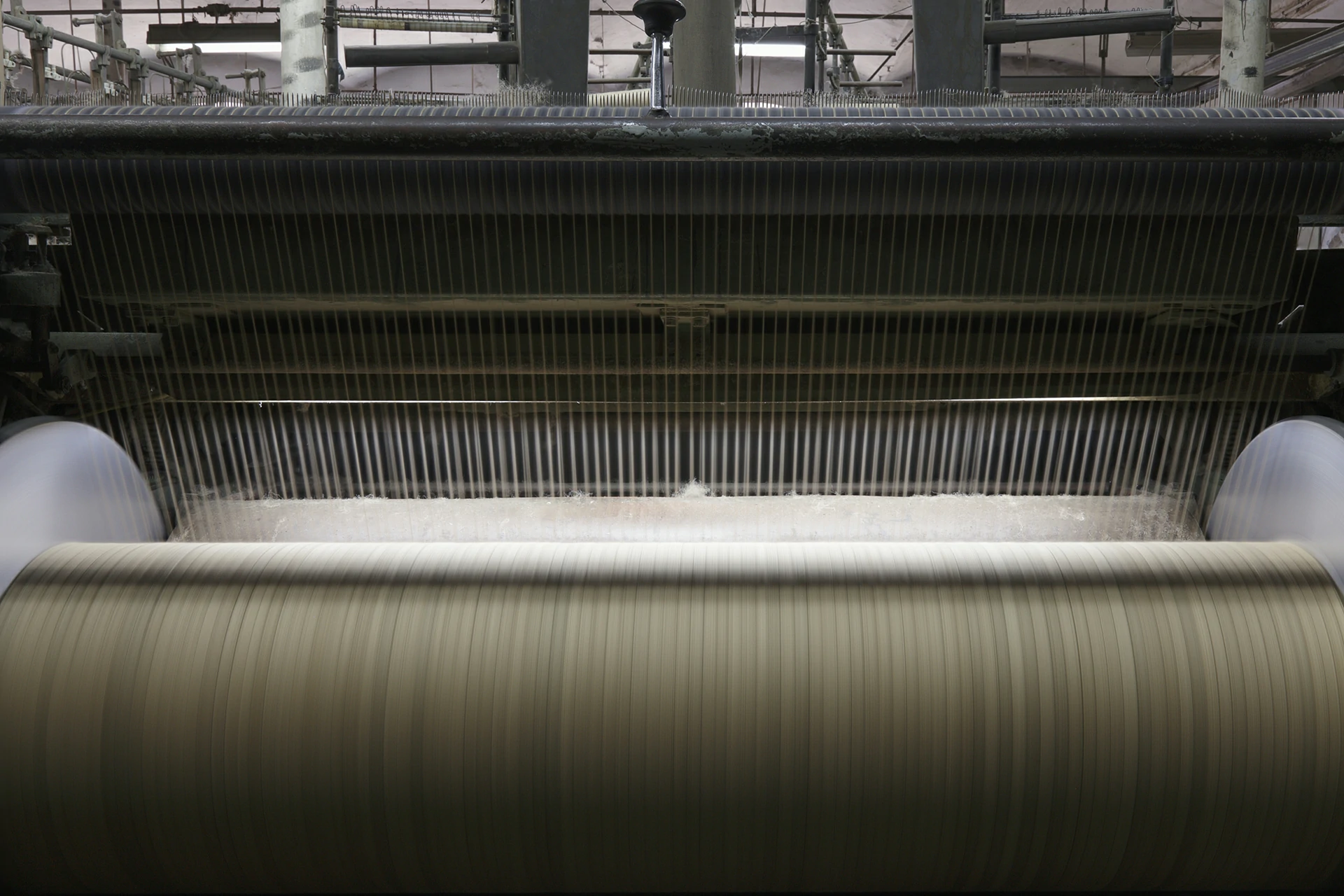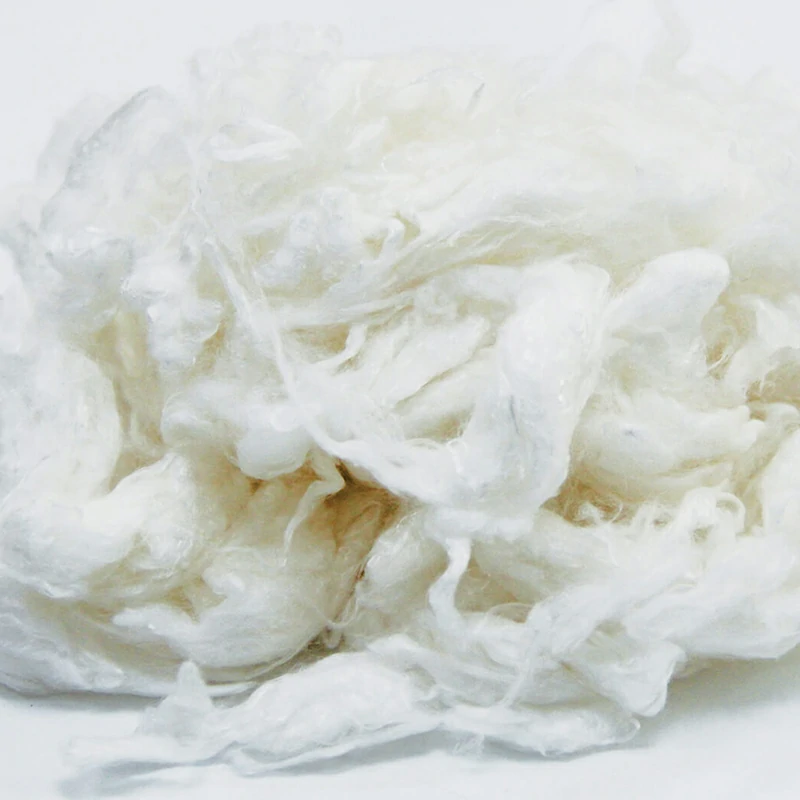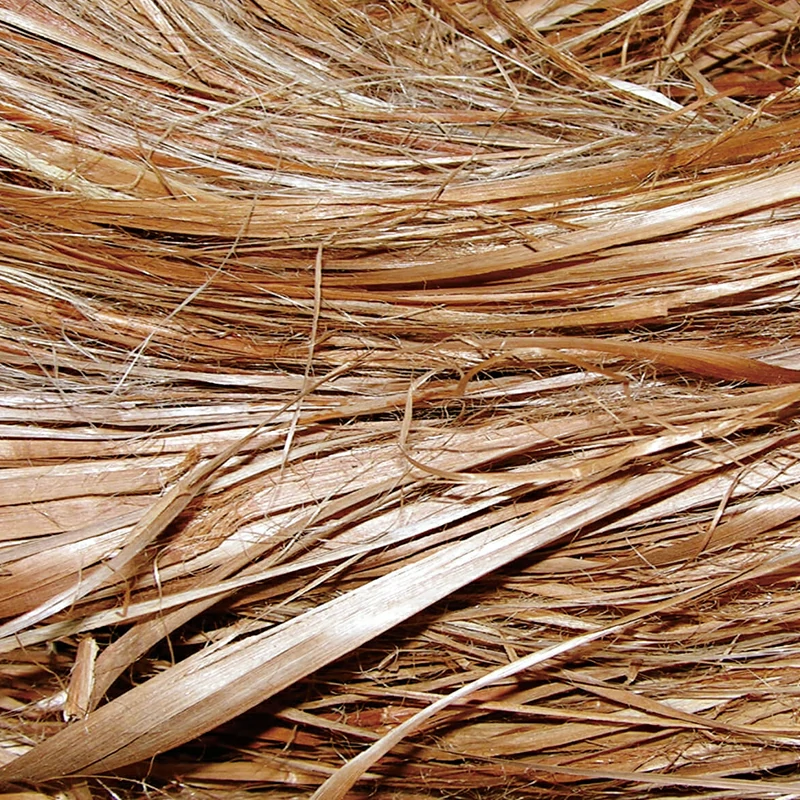
In recent years, the development of Xinjiang apocynum resources has gained significant consumer recognition for its natural antibacterial properties, ability to keep warm in winter and cool in summer, and overall health benefits. By leveraging the unique characteristics of apocynum fiber, we can produce high-quality yarn to better meet market demand. However, due to the fiber’s considerable length variations, poor uniformity, and low cohesion, spinning apocynum requires stringent quality control measures. So we are now working for the blended spinning of refined cotton and long-staple apocynum ramie.
Our new products for blended spinning of refined cotton and long-staple apocynum ramie are designed to showcase the breathable, moisture-conducting, and heat-dissipating properties of apocynum fiber. These products also offer the luster of silk, the crispness of hemp, the softness of cotton, and the comfort of natural fibers, while retaining the health benefits of apocynum. These attributes make them ideal for a wide range of applications, including woven fabrics, sheets, shirts, casual wear, underwear, socks, T-shirts, and home clothes.


According to test result, blended spinning of refined cotton and long-staple apocynum ramie have antibacterial and infrared protection functions, making them highly functional fibers. Customer feedback indicates that a 30% apocynum content significantly enhances antibacterial properties. However, our trial spinning revealed that higher apocynum content leads to fiber breakage and uneven roving. By tightening the roving roller spacing, we improved the uniformity and achieved smoother production at a 10% apocynum content. To stabilize apocynum fiber content at 10%, we adjusted the ordinary spacing block to the pressure bar spacing block, which yielded satisfactory results. While higher apocynum content poses production challenges, careful consideration of blending methods and processes can address these issues. We are committed to the research and development of apocynum fiber blended products. By thoroughly exploring various research avenues, we aim to successfully complete our R&D tasks and advance the potential of apocynum fiber in the market.
Layne | 07-26-2024 | Views 412 times
Exploring Biofabricated Textiles Exploring Biofabricated Textiles 1. Background In the quest for sustainability and innovation, the textile industry is undergoing a revolutionary transformation through biofabrication. This cutting-edge te...
Layne | 07-16-2024 | Views 168 times
Exploring T800 Fabric: Innovation and Comfort In the realm of textile innovation, T800 fabric stands out as a preferred choice for discerning markets seeking both functionality and style. Derived from a blend of PBT and PET polyester fibers, T800 fabric blends t...
Layne | 07-16-2024 | Views 321 times
Bio – Enzyme Recycling Polyester Technology 1. Background Each year, the textile and fashion industry produces 100 billion garments, with 92 million tons ending up in landfills—a truckload of clothes discarded every second. Since polye...
Layne | 07-16-2024 | Views 356 times
Xylitol – New Technology To Unlock Lasting Cool Feeling 1. What is Xylitol and Its Advantages Xylitol, commonly known as a sugar substitute, is a naturally occurring sugar alcohol that is favored for its many properties in a variety of...
Layne | 07-11-2024 | Views 209 times
Emerging Trends in Outdoor Fabric: A Look into the Future In the dynamic world of outdoor fabrics, trends are constantly evolving to meet the demands of both functionality and style. As we move into the future, several key trends are shaping the landscape of out...
Layne | 06-24-2024 | Views 233 times
Blended Spinning Of Refined Cotton And Long-Staple Apocynum Ramie 1. Innovation Background In recent years, the development of Xinjiang apocynum resources has gained significant consumer recognition for its natural antibacterial properties, ability to keep warm in wint...
Contact us now for a free consult!